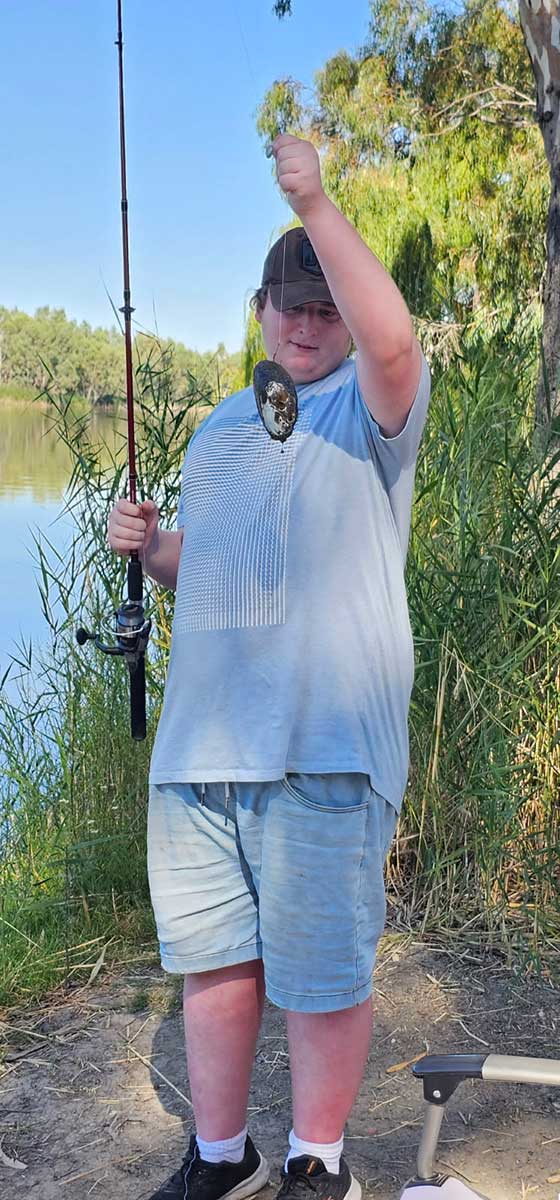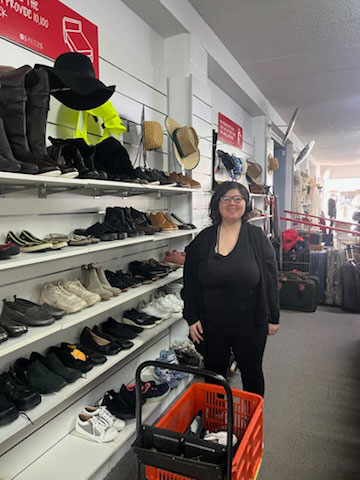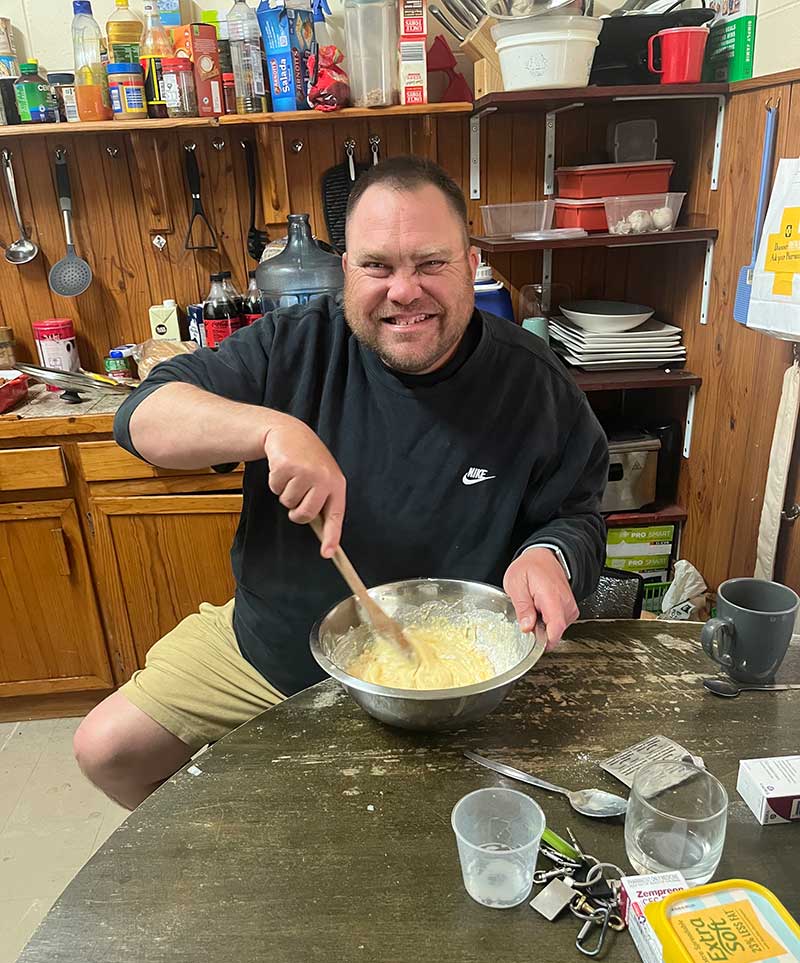NDIS psychosocial recovery coaching Riverland
Recovery coaching that supports mental health and daily life
Build routines, grow confidence, and move toward goals with an NDIS recovery coach
(Formerly Mandy’s Support Services)
Let us call you back
Your local NDIS services in the Riverland, South Australia. We support our communities in
Waikerie – Loxton – Loxton North – Barmera – Berri – Renmark – Paringa
NDIS psychosocial recovery coaching
When mental health makes the week feel unpredictable, a steady coach brings structure and calm. Our NDIS psychosocial recovery coaching helps you set practical goals, practice strategies in real settings, and take small steps that build confidence. Sessions move at a pace that protects wellbeing, with friendly check-ins and simple tools you can use each day.
Riverland Support Services and our psychosocial recovery coaching services
Riverland Support Services provides our psychosocial recovery coaching as a practical, mental health-aware service. Coaching is one-on-one and focused on developing coping strategies and practical skills to manage mental health and achieve your recovery goals. Support is available at home, in the community, and at appointments, with steps shaped to your comfort.
What our NDIS psychosocial recovery coaching service includes
These are the core parts of our NDIS psychosocial recovery coaching service.
Planning and goal setting for recovery
A clear plan that reflects your goals and what helps you feel safe.
- You define what progress looks like using simple measures that are easy to follow.
- Your week is mapped with appointments, self-care, and community time in a realistic rhythm.
- Practical recovery tools such as checklists, prompts, and a short reset plan give you the first steps on hard days.
Skills for daily routines and self-management
Strategies that make mornings, evenings, and busy moments easier to manage.
- Therapy strategies are practical in real settings with calm guidance and repetition.
- Routines for sleep, meals, medication prompts, and appointments grow in small steps.
- Simple planning for triggers and setbacks gives options that fit your preferences.
Community connection and confidence building
Gentle steps into the community with the right level of support.
- Activities are chosen at a comfortable pace and grow in time and frequency as confidence builds.
- Communication is planned for public settings, so asking for help and taking breaks feels easier.
- Travel details such as routes, timing, and meeting points are planned to reduce stress and improve attendance.
Crisis planning and service navigation
Planning for tough days and linking with the right supports when needed.
- Signs, first steps, and contacts are listed in a short crisis plan everyone can follow.
- Providers are kept informed with your preferences and updates, so support feels joined up.
- Times of low energy or rising symptoms are prepared for with a plan that keeps goals in sight.
Psychosocial recovery coaching
What it is, why it matters, and how we help
What is psychosocial recovery coaching
Psychosocial recovery coaching is a capacity-building NDIS support that helps you plan, practice skills, and stay engaged with life at a pace that feels safe. Sometimes called an NDIS recovery coach, psychosocial coaching turns strategies into small steps in real settings. Your recovery coach links goals to practical steps and coordinates with other supports. It sits under assistance in coordinating or managing life stages transitions and supports, registration group code 0106. You receive clear guidance, predictable check-ins, and subsequent actions that fit your routine.
Why psychosocial recovery coaching is important
Recovery can stall when energy, motivation, or confidence change day to day. Coaching brings structure to the week, supports independence at home and in the community, and helps prepare simple evidence for reviews. With steady support, routines hold, participation grows, and your recovery plan feels easier to follow.
How we deliver psychosocial recovery coaching
Everything starts with listening to your goals and the strategies that already help. Together we map supports to your plan, agree on check-ins, and set a pace that protects wellbeing. Notes are short and valuable, and the plan flexes if life shifts so services stay relevant. Communication stays friendly and consistent to keep everyone aligned.
Start to build your practical skills
A short conversation can bring clarity and simple next steps.
Feel the difference with one on one psychosocial recovery coaching
When the week feels unpredictable, steady guidance brings calm and direction. Our NDIS psychosocial recovery coaching helps you set practical goals, practice strategies in real settings, and build momentum you can feel. Small wins stack up and confidence grows as routines take shape.
In the short term, stress eases and appointments feel manageable. Over time, independence builds, community participation becomes more comfortable, and decisions feel simpler because you trust your plan.
More confidence day to day
Small wins stack up, so decisions feel easier, and you trust your plan.
Routines that hold
Sleep, meals, and appointments stay steady with simple tools you can use on tough days.
Calmer community participation
Planned routes and break points lower anxiety so outings become familiar and more enjoyable.
Evidence ready at review time
Short notes and outcomes link to goals, making requests clearer

How psychosocial recovery coaching fits into your NDIS plan
Psychosocial recovery coaching is funded under capacity building as assistance in coordinating or managing life stages transitions and supports, registration group code 0106. It can be used with self-managed, plan-managed, or NDIA-managed plans. Coaching links goals to services, keeps appointments on track, and gathers simple notes that show outcomes for review.
How we work with you to deliver psychosocial recovery coaching
Initial contact and understanding your needs
You talk about what matters, what feels safe, and what already helps. We listen, agree on a gentle pace, and set a small first goal. It makes starting feel manageable. Coaches hold relevant qualifications (NDIS recovery coach qualifications such as Certificate IV in Mental Health) and use strengths-based recovery coaching.
Planning and NDIS alignment
You want structure without overwhelm. We map goals to the coaching category, plan check-ins, and choose settings that suit you. This creates a rhythm that protects wellbeing.
Service agreement and setup
You need clarity about sessions and communication. We prepare an easy-to-read agreement, schedule visits, and confirm how updates will be shared. It keeps everyone informed and reduces stress.
Delivering supports
You practice strategies in real life with calm guidance. We pace activities, plan for tricky moments, and celebrate small wins. This turns skills into habits you can rely on.
Ongoing review and goal tracking
You want to see progress in plain language. We record short notes linked to goals, adjust when energy changes, and prepare simple evidence. It helps reviews feel predictable and supportive.
Why choose us for psychosocial recovery coaching
Psychosocial recovery coaching under assistance in coordinating or managing life stages transitions and supports, code 0106, is delivered with a calm, participant-first approach. The focus is on steady routines, timely communication, and measurable progress that matches your goals.
You work with coaches experienced in psychosocial disability, so plans feel realistic and safe.
Each action links to a goal, which makes progress visible and simple to review.
A supervised team and ongoing learning protect quality and safety across services.
After each check-in, you know the next step and date, which reduces uncertainty.
Coaching is available at home, in community settings, and at appointments across Waikerie, Loxton, Barmera, Berri, Renmark, Paringa, and Loxton North.
Providers and plan managers stay aligned through clear information flows, so support feels joined up.

Challenges we help overcome with psychosocial recovery coaching
Many participants face barriers that make progress feel stop-start. Coaching is designed to remove those barriers and create steady movement.
Low motivation or energy
On hard days, even small tasks feel heavy. You get bite-sized steps and a reset plan that protects your routine.
Anxiety in public settings
Crowds, noise, and uncertainty can be overwhelming. Outings are planned with scripts, quiet options, and clear exit points so you feel safer.
Trouble keeping routines
Sleep, meals, and appointments slip when life gets busy. You get simple tools and prompts to rebuild routine without pressure.
Unclear goals or next steps
Too many choices can stall progress. Coaching narrows focus to a few wins, so momentum returns.
Communication barriers
Sharing needs with services can be hard. Providers receive your preferences in plain language so support fits who you are.
Psychosocial recovery coaching, conditions or needs we support
NDIS psychosocial recovery coaching supports people whose energy, motivation, or confidence changes day to day. You set the pace while we turn coping strategies into small steps in real settings. The aim is calmer routines, safer community participation, and progress you can feel.
Psychosocial disability
Motivation and energy can rise and fall. Psychosocial recovery coaching sets small, realistic goals, practices strategies in real life, and celebrates wins so progress feels steady.
Schizophrenia
Fluctuations in focus and sensory load make days unpredictable. Coaching uses short, repeatable steps, prepares for tricky moments, and builds routines that hold. You notice calmer days and more predictable weeks.
Bipolar disorder
Mood shifts can derail habits. Coaching protects sleep and meals, paces activity, and sets reset plans for heavy days. Over time, daily life feels more balanced.
Autism spectrum
Change and crowded places can be hard. Coaching plans environments, scripts conversations, and builds community time at a comfortable pace. Confidence grows with each familiar outing.
Post-traumatic stress
Triggers can make public settings feel unsafe. Coaching prepares grounding options, exit plans, and gentle exposure steps. You decide the pace and keep control.
Intellectual disability
Complex instructions make tasks harder. Coaching uses plain language, visual cues, and repetition so skills stick. Small steps lead to real independence.
Our service areas psychosocial recovery coaching
Psychosocial recovery coaching is available across Riverland areas including Waikerie, Loxton, Loxton North, Barmera, Berri, Renmark, and Paringa. If you need a NDIS recovery coach near me, we will meet you locally. Appointments can be at home, in community settings, or alongside other services. Scheduling is planned with notice, so travel time is used well, and your week remains predictable.

Frequently asked questions about psychosocial recovery coaching
How does psychosocial recovery coaching help in everyday life?
You get practical help to plan your week, practice strategies, and keep appointments on track. Small steps build habits that lower stress. Over time, you notice steadier routines, more confidence, and easier participation in the community.
What happens in the first month with my coach?
Your coach listens to what matters to you and explains the plan sections in plain English. Together, you set a few clear goals and agree on check-ins. Early sessions focus on simple wins that make the week feel calmer with your NDIS recovery coach.
How does coaching fit with therapy or support coordination?
Coaching complements therapy by practising strategies in daily life. It also links with support coordination, so providers share information and the plan stays aligned. You get a joined-up approach that supports both mental health support and routine.
Can coaching help if leaving the house feels difficult?
Yes, sessions are paced to your comfort with small, planned steps. Quiet locations, scripts for tricky moments, and clear exit options help you feel safer. Confidence grows as outings become familiar and predictable.
What if my goals change or my energy drops?
Goals are reviewed regularly, and the plan flexes with you. On heavy days, you use a short reset plan so routine is protected. Changes are shared with providers so support stays relevant to your psychosocial disability needs.
How do reviews work and what evidence do we keep?
Evidence is collected along the way in short notes linked to goals. Attendance and outcomes are summarised in plain language for review time. Preparing together makes the meeting calmer and more focused.
Are you ready to get started
You deserve support that understands mental health and moves at your pace. With psychosocial recovery coaching, you plan realistic steps, practice strategies, and build confidence in ways that fit daily life. Each decision is explained, each action is documented, and progress is tracked in simple, practical ways.
If you are a participant, a family member, or a professional seeking a responsive team in the Riverland, we are ready to help. Coaching is available across Waikerie, Loxton, Loxton North, Barmera, Berri, Renmark, and Paringa.
